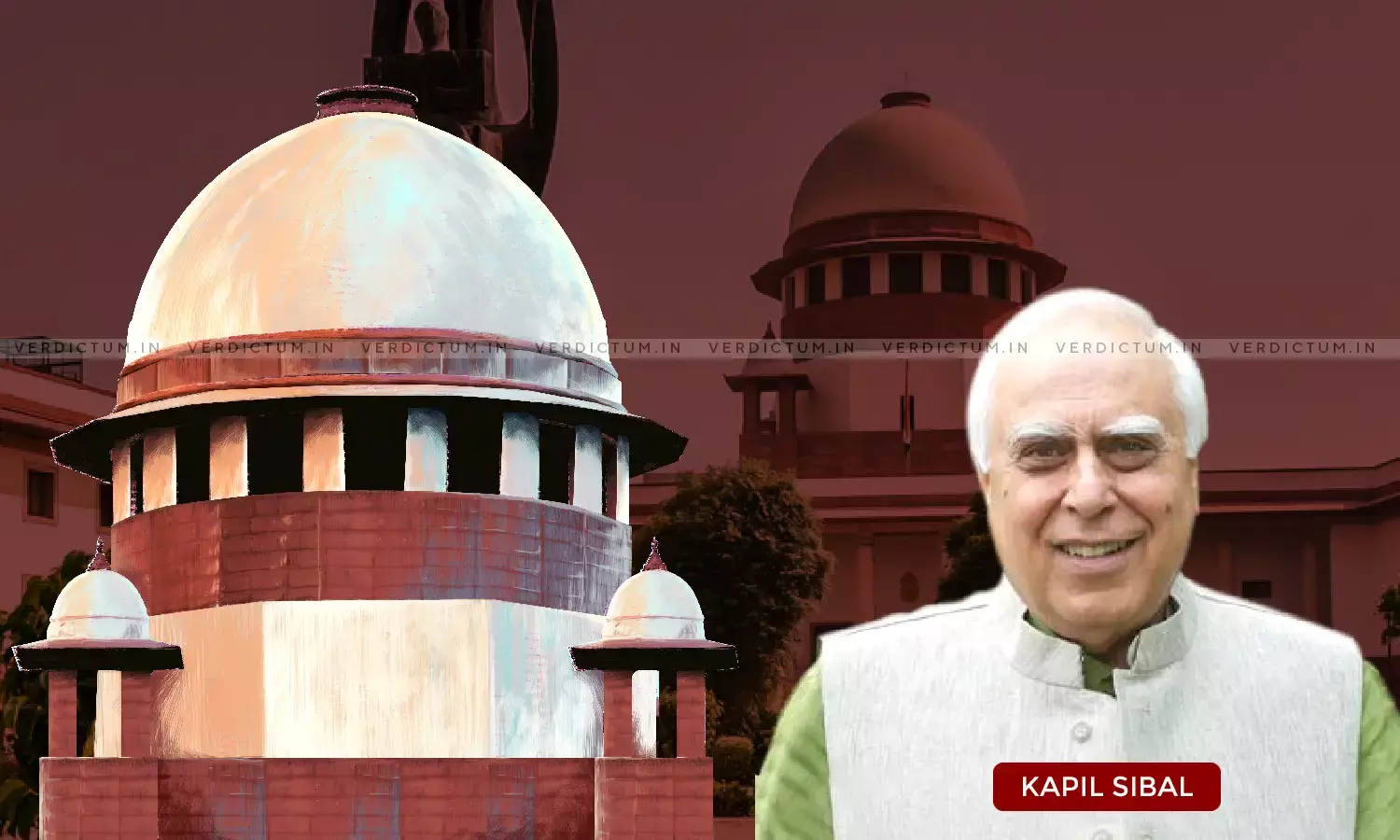Same-Sex Marriage| Either Do Everything, Or Nothing At All: Kapil Sibal For Jamiat Ulema i-Hind Opposes Suggestion To Limit Hearing To Secular Laws

After the Supreme Court refused to accept the Union's plea to consider its preliminary objection to the maintainability of the petitions before entering into the merits of the case, the Constitution Bench of Chief Justice DY Chandrachud and Justice SK Kaul, Justice S Ravindra Bhat, Justice Hima Kohli and Justice P.S. Narasimha heard Senior Advocate Mukul Rohatgi to understand the broad canvas of the petitioner's case.
This was followed by Submissions by Solicitor General Tushar Mehta for the Union of India and by Senior Advocate Kapil Sibal who appeared for Jamiat Ulama-i-Hind and opposed the petitions. Mukul Rohatgi had submitted that the Court can grant relief to the petitioner without touching the personal laws, by interpreting the Special Marriages Act. It appeared that the Bench was willing to adopt that course of action, i.e. to limit the hearing to secular laws alone.
Responding to this suggestion Kapil Sibal asked the Court specifically “to either do everything or nothing at all”.
“I shouldn’t be appearing before this Court, but as an officer of this Court it is a request to you that either do everything or do nothing at all. I am not representing anybody, as you are leaving the personal laws out of it, so I am out of it”, Sibal submitted. CJI DY Chandrachud then asked which party is he representing. “Jamiat..”, Sibal answered.
“ …We believe in autonomy of individuals. People are entitled to have a relationship of whatever kind and we needs to celebrate the union of two people. Now if the marriage is allowed and is valid, but if the marriage breaks who will take care of the child? Who will be the father? Who will be the women for the purpose of maintenance under CrPC? There are serious societal consequences of that declaration. If this is not done as a whole then let it not be done at all”, Sibal said.
He further urged, “When this is done across the world, other legislatures reform other laws as a consequence, and if you do it otherwise, you will be hurting the other communities, which is dangerous. I am all for it, but not in this fashion”.
The CJI then said, “We would like you to assist us in the later part of the hearing as an officer of the court Mr. Sibal”.
In yet another interesting exchange, Solicitor General Tushar Mehta appearing for the Union of India had submitted that considering the use of the word "person" in the Special Marriage Act, the legislative intent of the legislature throughout has been a relation between a biological male and a biological female.
Jamiat Ulama-i-Hind had approached the Apex Court seeking impleadment in the batch of pleas stating that there would 'arise larger implications' if same-sex marriage is recognized by the Court. Their affidavit said that the "concept of marriage is more than just the socio-legal recognition of a union of any two persons” and that "the recognition of marriage is on the basis of established and sustainable societal norms and shall not keep changing on the basis of variable notions based upon newly developed value system emerging from a different worldview in a different paradigm".

